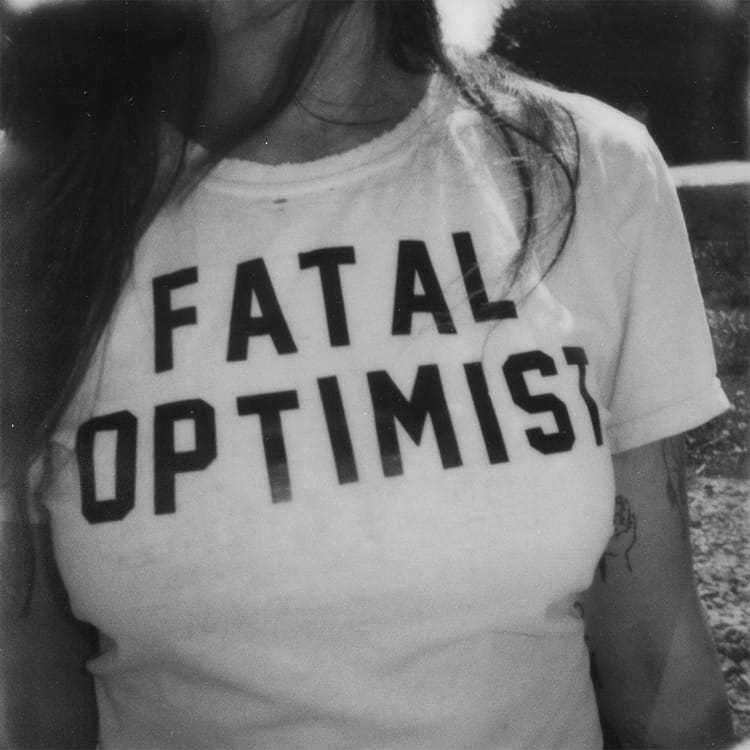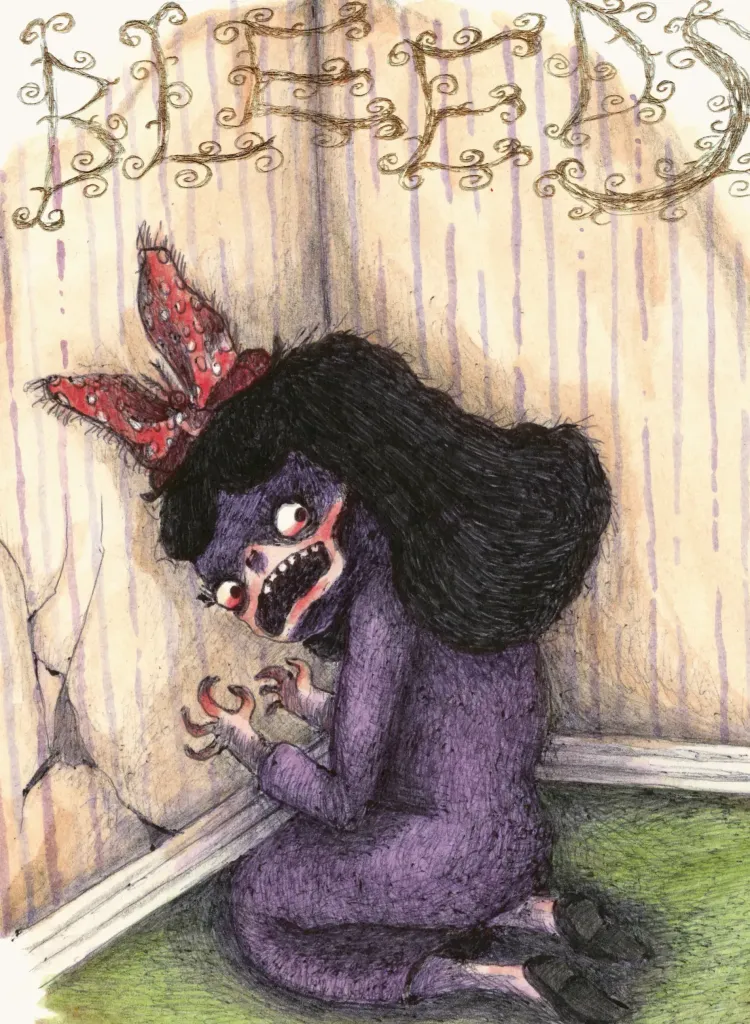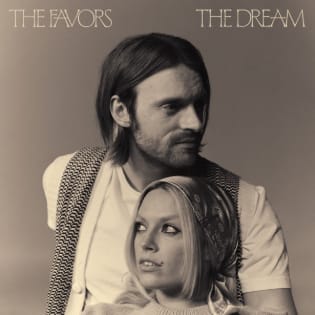Geese - Getting Killed: An In-Depth Album Review, Track by Track

It’s September 2025, and the world feels like it’s teetering on the edge of a cliff, with the air thick from wildfires and the news thicker with dread. America’s a mess—fascism’s shadow looms large, and the cultural pulse is a mix of defiance and despair. Into this chaos, Geese, the Brooklyn quartet barely old enough to rent a car, drop Getting Killed, their fourth studio album (though they call it their third, sidelining their 2018 debut A Beautiful Memory). This record isn’t just music; it’s a Molotov cocktail lobbed at the zeitgeist, a sonic fever dream that channels the apocalyptic now with krautrock grooves, funk-drenched riffs, and Cameron Winter’s voice—a warbling, soul-shredding force that sounds like it’s been chain-smoking since the Nixon administration.
Getting Killed matters because it’s not here to comfort you; it’s here to shake you awake. Geese have shed the country twang of their 2023 album 3D Country for something denser, more primal—think Can’s hypnotic repetition meeting Sticky Fingers’ sleazy swagger, with a dash of Nina Simone’s spiritual fire. The album’s themes are dark, heavy, philosophical: war, corruption, self-destruction, and the absurd humor of trying to stay human in a world that’s falling apart. Winter’s lyrics, often cryptic yet piercing, weave images of bombs, horses, and gumball machines into a tapestry of existential rebellion. The album’s artwork—a shinning light blocking your way, and distorted faces—sets the tone for the journey: this is rock and roll as a survival mechanism, a middle finger to despair.
Buckle up. We’re diving into Getting Killed track by track, peeling back the layers of this beast to find the pulse beneath its madness.
1. Trinidad (3:44)
Initial Impressions: Trinidad is a firecracker of an opener, a sonic gut-punch that sets the tone for Getting Killed’s unhinged energy. It’s a chaotic blend of dubby verses and explosive choruses, with Cameron Winter’s repeated shrieks of “There’s a bomb in my car!” acting like a warning siren for the album’s apocalyptic vibe. This track is a standout, grabbing you by the collar and dragging you into Geese’s world.
Lyrics Analysis:
The refrain—“There’s a bomb in my car / There’s a bomb in my car” (© 2025 Cameron Winter, Partisan Records)—is delivered 13 times, a manic mantra that feels like a confession and a cry for help. Winter told me over hot dogs at a Mets game that it’s a “multifaceted metaphor” for love and peace, but let’s be real: it’s also about the terror of living with destruction just under the hood. Lines like “I’m getting out of this place / Someone’s in the trunk” hint at escape, violence, or both, layered with a dark humor that’s pure Geese. The imagery evokes a world where danger is intimate, personal—like a bomb you drive to work. It’s a nod to the absurdities of modern life, where anxiety and rebellion collide.
Melody and Musicality:
The track starts with a chill, reggae-tinged groove, all skittering hi-hats and Nick Lee’s trombone weaving through the mix like a snake charmer’s call. Then it explodes into a krautrock frenzy, with Emily Green’s guitar slashing through and Max Bassin’s drums pounding like a runaway train. The panning is disorienting—sounds dart from left to right, mimicking the chaos of Winter’s lyrics. Aaron Paris’s violin adds a haunting edge, like a ghost in the machine. It’s a masterclass in tension and release, building to a crescendo that feels like the car might actually blow up.
Issue Relevance:
Trinidad captures the paranoia of 2025 America—where every headline feels like a ticking bomb. The song’s frenetic energy mirrors the cultural unrest, from political polarization to ecological collapse. Winter’s repeated cries feel like a protest against a system that’s rigged to explode, making it a perfect anthem for a generation staring down the barrel of uncertainty.
Insights & Anecdotes:
Winter leaked Trinidad on Instagram in July 2025, a now-deleted post that sent fans into a frenzy. Recorded in a ten-day sprint with producer Kenny Beats in Los Angeles, the track was born from a 30-minute jam session, with Winter scribbling the “bomb” lyric 25 times before stepping to the mic. Kenny thought he was joking, but Winter’s deadpan delivery sold it. In our Mets game chat, he smirked when I asked about the lyric, dodging with, “It’s about love, it’s about peace, all that stuff.” Sure, Cameron.
Personal Evaluation:
This song hit me like a freight train. The way Winter’s voice cracks with urgency, the way the band builds from a simmer to a boil—it’s exhilarating and terrifying. I felt like I was in that car, foot on the gas, unsure if I was fleeing or chasing the explosion. It’s a perfect opener, raw and unapologetic, setting the stage for the album’s wild ride.
Summative Evaluation:
Trinidad is a triumph of controlled chaos, blending dub, krautrock, and punk into a three-and-a-half-minute adrenaline shot. Its only flaw is that it ends too soon—I wanted another minute of that glorious mayhem. A near-perfect start to Getting Killed.
2. Cobra (3:05)
Initial Impressions:
Cobra slithers in as a breather after Trinidad’s bombast, a melodic interlude with a delicate, almost folky strum. It’s not a standout but a crucial pivot, letting you catch your breath while keeping the album’s dark undercurrent alive.
Lyrics Analysis:
Winter’s lyrics here are softer, more introspective: “I’m a snake in the grass / I’m a shadow in the glass” (© 2025 Cameron Winter, Partisan Records). The cobra metaphor suggests stealth and danger, but also vulnerability—a creature that strikes but can be crushed. It’s about navigating a world that’s both predator and prey, a quieter reflection on the album’s themes of survival and deception.
Melody and Musicality:
Emily Green’s guitar is the star, a dainty, reverb-soaked pluck that feels like rain on a tin roof. Bassin’s drums are restrained, tapping out a minimalist rhythm, while Winter’s voice floats like a ghost, less abrasive than on Trinidad. The simplicity is deliberate, a contrast to the album’s louder moments, though it risks feeling underwhelming in comparison.
Issue Relevance:
The song’s introspective tone speaks to the personal toll of living in a world of constant threat. In 2025, with mental health crises spiking and social trust eroding, Cobra’s quiet menace feels like a meditation on self-preservation in a snake pit of a society.
Insights & Anecdotes:
Recorded in the same wildfire-choked LA sessions, Cobra was a late addition, born from a hungover morning where Green strummed the riff while the band nursed coffees. Winter called it “a song about being sneaky but sad,” a throwaway line that stuck with me. It’s less polished than other tracks, but that rawness is its charm.
Personal Evaluation:
Cobra didn’t grab me at first, but its subtlety grew on me. It’s like a moment of calm in a storm, though I wished for a bit more bite to match the title. Still, Winter’s croon and Green’s guitar work weave a spell that lingers.
Summative Evaluation:
A solid transitional track, Cobra balances tenderness and tension but lacks the explosive payoff of the album’s heavier hitters. It’s a necessary pause, beautifully executed, if not unforgettable.
3. Husbands (4:08)
Initial Impressions:
Husbands is a stomping, controlled burn, a track that feels like a bar fight in a dive bar at the end of the world. It’s a standout for its raw energy and relentless drive, a perfect showcase of Geese’s ability to marry chaos with precision.
Lyrics Analysis:
Winter’s lyrics are dense and surreal: “I’m a husband to the war / I’m a husband to the floor” (© 2025 Cameron Winter, Partisan Records). The repetition of “husband” feels like a warped vow, tying the narrator to destruction and defeat. It’s a commentary on loyalty to broken systems—war, society, or even oneself—delivered with a snarl that’s both defiant and resigned.
Melody and Musicality:
The track is a rhythmic beast, with Bassin’s drums pounding like a war march and DiGesu’s bass locking into a hypnotic groove. Green’s guitar and Aaron Paris’s violin add a jagged edge, slicing through the mix like shrapnel. The tempo is relentless, building to a climax that feels like a storm breaking. Winter’s vocals shift from croon to scream, embodying the song’s volatile spirit.
Issue Relevance:
Husbands speaks to the exhaustion of fighting unwinnable battles, whether personal or political. In a world where wars rage and systems crumble, the song’s imagery of being “married” to destruction resonates as a critique of blind allegiance to failing institutions.
Insights & Anecdotes:
Kenny Beats described Husbands as “the song where the band just went feral.” It was recorded in a single take, with Winter pacing the studio like a caged animal. Emily Green told me at Citi Field that the violin part was a last-minute addition, inspired by a late-night binge of Eastern European folk music. It’s the kind of happy accident that defines Geese’s process.
Personal Evaluation:
This track hit me hard—visceral, angry, alive. It’s like being caught in a riot you didn’t start but can’t escape. Winter’s delivery is raw, and the band’s synergy is electric. It’s one of those songs that makes you want to punch the air and cry at the same time.
Summative Evaluation:
Husbands is a powerhouse, a perfect blend of aggression and artistry. Its only flaw is that it could lean even harder into its chaos, but it’s a near-flawless execution of Geese’s vision.
4. Getting Killed (4:44)
Initial Impressions:
The title track is a sprawling, apocalyptic epic, a centerpiece that embodies the album’s dark heart. It’s a standout for its philosophical weight and relentless build, drawing you into its vortex of despair and defiance.
Lyrics Analysis:
“Morning walked me out of here with no shoes / And one foot doesn’t wanna stay alive” (© 2025 Cameron Winter, Partisan Records). Winter’s lyrics are a fever dream of alienation, with images of Ukrainian choir samples and gumball machines colliding into a narrative of being crushed by life’s absurdity. The refrain—“I’m getting killed by a pretty good life”—is both ironic and heartbreaking, a nod to the paradox of privilege in a collapsing world.
Melody and Musicality:
The track opens with a haunting choir sample, layered with streaking chords that feel like a sky splitting open. Bassin’s drums drive the rhythm like a heartbeat, while Green’s guitar weaves a jagged tapestry. Winter’s voice is the star, shifting from a mournful croon to a desperate wail. The krautrock-inspired build is relentless, each layer adding to the sense of impending doom until it crashes into a cathartic release.
Issue Relevance:
In 2025, with wildfires, wars, and political decay dominating the headlines, Getting Killed feels like a dispatch from the front lines of existential dread. It’s a song about surviving a world that’s trying to break you, a theme that resonates deeply in a culture grappling with its own mortality.
Insights & Anecdotes:
Winter wrote the title track after a sleepless night in LA, watching news coverage of the wildfires while the band recorded. Kenny Beats pushed for the choir sample, a nod to Winter’s obsession with Nina Simone’s spirituals. The line about the gumball machine came from a real moment—Winter getting stuck in a vending machine line at the studio, laughing at the absurdity of it all.
Personal Evaluation:
This song wrecked me. It’s heavy, not just in sound but in feeling—like carrying a boulder uphill. Winter’s voice, raw and pleading, made me feel seen in my own struggles. It’s a song that demands you confront the mess of being alive, and I’m still reeling from it.
Summative Evaluation:
Getting Killed is a masterpiece of mood and momentum, a track that captures the album’s soul. Its length and density might overwhelm some, but for me, it’s a perfect distillation of Geese’s power.
5. Islands of Men (5:54)
Initial Impressions:
Islands of Men is a hypnotic, krautrock-inspired journey, one of the album’s longest and most ambitious tracks. It’s a standout for its slow-burn intensity, building from a single riff into a towering wall of sound.
Lyrics Analysis:
“I’m an island of men / I’m a city of sin” (© 2025 Cameron Winter, Partisan Records). Winter’s lyrics are dense with biblical imagery, evoking isolation and moral decay. The “island” feels like a metaphor for the self, adrift in a sea of corruption. The repetition of “men” is both a lament and a challenge, questioning humanity’s role in its own downfall.
Melody and Musicality:
The track leans heavily on Can’s influence, with a repetitive bassline from DiGesu that anchors the song like a pulse. Green’s guitar and Nick Lee’s trombone build layer upon layer, creating a trance-like effect. Bassin’s skittering percussion keeps the tempo unpredictable, while Winter’s vocals soar from whisper to roar. The final minute is a glorious cacophony, every instrument firing in unison.
Issue Relevance:
The song’s themes of isolation and sin resonate in a world fractured by division and distrust. In 2025, as communities splinter under political and environmental strain, Islands of Men feels like a meditation on the loneliness of standing against the tide.
Insights & Anecdotes:
Emily Green described Islands of Men as “the song that nearly broke us.” The band spent hours jamming on a single chord progression, with Winter improvising lyrics in real-time. Kenny Beats called it “the heart of the album,” a track that captured Geese’s ability to turn repetition into revelation.
Personal Evaluation:
This track is a journey. It’s not immediate, but once it hooks you, it’s transcendent. I found myself lost in its rhythm, like floating in a dream where everything’s falling apart but you’re somehow okay with it. Winter’s voice is a lighthouse in the storm.
Summative Evaluation:
Islands of Men is a bold, immersive track that rewards patience. Its length might deter casual listeners, but its depth and intensity make it a cornerstone of Getting Killed.
6. 100 Horses (3:46)
Initial Impressions:
100 Horses is a funky, straightforward rocker, a burst of energy that feels like a release after the album’s heavier moments. It’s a standout for its infectious groove and unapologetic swagger.
Lyrics Analysis:
“I saw 100 horses dancing, maybe 124 / All horses must go dancing” (© 2025 Cameron Winter, Partisan Records). The imagery is vivid and surreal, with horses symbolizing freedom or chaos in a world at war. The line “There is only dance music in times of war” is a gut-punch, suggesting art as both escape and defiance. It’s Winter at his most evocative, blending humor and horror.
Melody and Musicality:
This is Geese at their funkiest, with Green’s guitar laying down a groove that’s pure James Brown meets Black Sabbath. Bassin’s drums are tight and propulsive, while DiGesu’s bassline slinks like a panther. Nick Lee’s trombone adds a brassy punch, and the metallic skronks in the bridge are pure adrenaline. It’s a track that demands you move.
Issue Relevance:
In a world where conflict feels omnipresent, 100 Horses captures the absurd resilience of creating art amidst chaos. It’s a reminder that even in dark times, there’s power in rhythm, in movement, in refusing to stand still.
Insights & Anecdotes:
Winter wrote the horse imagery after a dream about a stampede, scribbling the lyrics in a haze at 3 a.m. The band recorded it in one take, fueled by Red Bulls and a shared obsession with Funkadelic. Kenny Beats called it “the song that made us dance in the studio.”
Personal Evaluation:
This track is pure joy, a shot of funk in the album’s dark veins. It made me want to crank the volume and dance like nobody’s watching. Winter’s playful delivery and the band’s groove are infectious.
Summative Evaluation:
100 Horses is a high-octane banger, a perfect blend of funk and rock. It’s lean, mean, and impossible to resist, with no real flaws to speak of.
7. Half Real (3:22)
Initial Impressions:
Half Real is a melodic gem, a tender moment that contrasts the album’s intensity. It’s not the flashiest track but a crucial breather, showcasing Winter’s lyrical wit and the band’s softer side.
Lyrics Analysis:
“You may say that our love was only half real / But that’s only half true” (© 2025 Cameron Winter, Partisan Records). Winter’s bickering tone is both funny and poignant, a lover’s spat wrapped in existential doubt. The song explores the blurred lines between reality and perception, a theme that resonates with the album’s broader philosophical bent.
Melody and Musicality:
Green’s guitar is delicate, almost lullaby-like, while Bassin’s drums tap out a gentle pulse. Winter’s voice is restrained, with a touch of falsetto that adds vulnerability. The arrangement is sparse but effective, letting the lyrics shine without overpowering them.
Issue Relevance:
In an era of fake news and fractured realities, Half Real feels like a meditation on truth and connection. It’s a song for a generation questioning what’s real in a world of filters and facades.
Insights & Anecdotes:
Winter wrote Half Real during a late-night walk in Brooklyn, inspired by an argument with a friend. The band recorded it acoustically at first, before adding subtle layers in the studio. Emily Green called it “our quiet rebellion,” a song that fights by whispering.
Personal Evaluation:
This track snuck up on me. Its simplicity is deceptive, hiding a depth that unfolds with each listen. It’s like a warm hug in the middle of a brawl, and I’m here for it.
Summative Evaluation:
Half Real is a beautiful, understated track that balances the album’s chaos. It’s not a showstopper, but its emotional clarity makes it essential.
8. Au Pays du Cocaine (3:30)
Initial Impressions:
Au Pays du Cocaine is a folky, psychedelic detour, a track that feels like a fever dream in a desert cantina. It’s a standout for its weirdness, channeling the album’s darker themes through a haze of surreal beauty.
Lyrics Analysis:
“I’m in the land of cocaine / Where the sun don’t shine the same” (© 2025 Cameron Winter, Partisan Records). Winter’s lyrics paint a surreal landscape of addiction and escape, with cocaine as a metaphor for chasing oblivion. The imagery is vivid yet disorienting, like a drug-fueled vision of paradise gone wrong.
Melody and Musicality:
The track has a loose, almost jam-band vibe, with Green’s guitar strumming a folky melody and Bassin’s percussion skittering like a rattlesnake. Winter’s vocals are languid, almost Tom Waits-ian, drifting through the mix like smoke. The arrangement builds slowly, never quite exploding but leaving you in a trance.
Issue Relevance:
In 2025, with opioid crises and mental health struggles rampant, Au Pays du Cocaine feels like a commentary on escapism and its costs. It’s a song about losing yourself to numb the pain, a theme that hits hard in a world on edge.
Insights & Anecdotes:
The song was inspired by a late-night conversation between Winter and Kenny Beats about escapism in music. The title nods to a French phrase Winter overheard in a dive bar, and the band leaned into its absurdity. Recorded in a single, bleary-eyed session, it’s one of the album’s most spontaneous moments.
Personal Evaluation:
This track is weird as hell, and I love it. It’s like stumbling into a dream you don’t want to wake from, even if it’s unsettling. Winter’s delivery is hypnotic, and the band’s restraint is masterful.
Summative Evaluation:
Au Pays du Cocaine is a bold, bizarre gem that showcases Geese’s willingness to take risks. It’s not for everyone, but its haunting beauty is undeniable.
9. Bow Down (3:28)
Initial Impressions:
Bow Down is a funky, ferocious rocker, a track that struts with confidence and explodes with a sublime drop near the end. It’s a standout for its groove and intensity, a perfect blend of swagger and substance.
Lyrics Analysis:
“I was a sailor / I was a sailor and now I’m a boat / I was a car / I was a car and now I’m the road” (© 2025 Cameron Winter, Partisan Records). Winter’s lyrics are a shape-shifting meditation on identity and transformation, with a dark humor that cuts deep. The “bow down” refrain feels like a mocking command, challenging authority while embracing its absurdity.
Melody and Musicality:
Green’s guitar is filthy, laying down a groove that’s equal parts Funkadelic and Led Zeppelin. Bassin’s drums are a revelation, driving the track with a relentless pulse, while DiGesu’s bass slinks like a shadow. The drop at the end—a sudden, soaring guitar riff backed by Aaron Paris’s violin—is pure ecstasy, a moment that makes you want to scream along.
Issue Relevance:
Bow Down is a middle finger to power structures, from corporate greed to political corruption. In 2025, with distrust in institutions at an all-time high, the song’s defiance feels like a rallying cry for those fighting the good fight.
Insights & Anecdotes:
The band wrote Bow Down during a heated studio argument, channeling their frustration into the song’s raw energy. Winter called the drop “the moment we all stopped fighting and just played.” Kenny Beats pushed for the violin, a nod to his love for genre-blending chaos.
Personal Evaluation:
This track is a banger, plain and simple. The groove got me moving, and that drop hit like a lightning bolt. It’s the kind of song that makes you feel invincible, even if just for three minutes.
Summative Evaluation:
Bow Down is a near-perfect rock anthem, blending funk, fury, and finesse. Its only flaw is that it leaves you wanting more of that glorious drop.
10. Taxes (3:17)
Initial Impressions:
Taxes, the lead single, is a melodic masterpiece, a track that grew from a slow burn to a transcendent highlight. It’s a standout for its emotional depth and that jaw-dropping instrumental switch-up.
Lyrics Analysis:
“If you want me to pay my taxes / You’d better come over with a crucifix / You’re gonna have to nail me down” (© 2025 Cameron Winter, Partisan Records). Winter’s lyrics are defiant and witty, a middle finger to bureaucracy and control. The crucifix imagery is both blasphemous and profound, tying personal rebellion to a broader fight against oppression.
Melody and Musicality:
The track starts with Latin-flavored percussion that echoes the Rolling Stones’ Sticky Fingers, but it’s no ripoff. Green’s guitar soars in the second act, a glowy groove that lifts the song to new heights. Bassin’s drums and a pinch of tambourine add a primal edge, while Winter’s “Doctor, doctor! Heal yourself!” oration is a moment of blistering lunacy. The switch-up—a sudden shift to a dreamy, expansive soundscape—is pure magic, like ascending into the clouds.
Issue Relevance:
In a world where economic inequality and government overreach dominate discourse, Taxes is a battle cry for autonomy. Its release in July 2025 sparked X threads and Reddit debates about its anti-establishment message, making it a cultural touchstone for a fed-up generation.
Insights & Anecdotes:
Winter wrote Taxes after a frustrating call with the IRS, turning bureaucratic rage into art. The music video, a hallucinatory rush of moshing and violence, was filmed in a single night in Brooklyn. Emily Green told me it was “the song that made us feel like we could take on the world.”
Personal Evaluation:
Taxes floored me. The switch-up gave me chills, and Winter’s defiance made me want to burn my tax forms (don’t worry, I didn’t). It’s a song that feels alive, urgent, and deeply human.
Summative Evaluation:
Taxes is a flawless single, blending melody, message, and momentum. It’s proof that Geese can write anthems without losing their edge.
11. Long Island City Here I Come (6:37)
Initial Impressions:
Long Island City Here I Come is the album’s crowning jewel, a six-and-a-half-minute epic that’s Geese’s greatest song to date. It’s a visceral, overwhelming closer that leaves you breathless and awestruck.
Lyrics Analysis:
“I have been fucking destroyed by the city tonight / I’m getting killed by a pretty good life” (© 2025 Cameron Winter, Partisan Records). Winter’s lyrics are raw and unfiltered, a stream-of-consciousness rant about urban decay and personal reckoning. The line “I have no idea where I’m going, here I come” is a tender, defiant farewell, capturing the album’s mix of chaos and hope.
Melody and Musicality:
This is Geese at their peak, a relentless jam where every instrument fires on all cylinders. Green’s guitar is a whirlwind, DiGesu’s bass is a thunderous pulse, and Bassin’s drums are a hurricane. Winter’s vocals are a force of nature, screaming and crooning with equal intensity. The final 20 seconds—a sudden, disorienting switch-up—flip the script, leaving you dazed like you just stumbled out of a dream.
Issue Relevance:
The song’s urban imagery and existential weight speak to the alienation of city life in 2025, where gentrification, inequality, and environmental collapse collide. It’s a love letter to New York and a lament for its soul, a theme that resonates with anyone who’s ever felt lost in a concrete jungle.
Insights & Anecdotes:
The track was recorded live in the studio, with the band feeding off each other’s energy. Winter wrote the lyrics after a night wandering Long Island City, watching the skyline burn under wildfire smoke. Kenny Beats called it “the song that broke the studio,” with mics clipping from the sheer volume.
Personal Evaluation:
This song is a religious experience. I closed my eyes, air-drummed like a maniac, and felt every note in my bones. It’s the kind of track that makes you believe in music again, raw and unfiltered. I’m still recovering from that final switch-up.
Summative Evaluation:
Long Island City Here I Come is a masterpiece, a perfect closer that encapsulates Getting Killed’s wild heart. It’s long, chaotic, and utterly transcendent, with no flaws to speak of.
Final Thoughts
Getting Killed is a triumph, a 45-minute odyssey that captures Geese at their most fearless and inventive. It’s not a perfect album—some tracks, like Cobra and Half Real, lack the immediate punch of the heavy hitters—but it’s a cohesive, thrilling ride that cements Geese as one of rock’s most vital voices. Cameron Winter’s lyrics are a labyrinth of wit and despair, while the band’s krautrock-funk-rock fusion is unlike anything else in 2025. This is music for the end of the world, played with the urgency of kids who know the clock’s ticking. Geese aren’t here to save rock and roll—they’re here to burn it down and build something new from the ashes. Rating 85/100





Member discussion